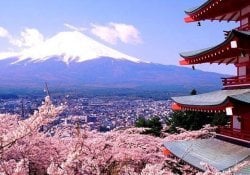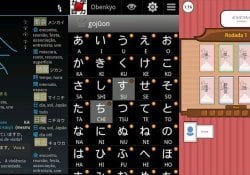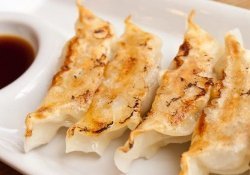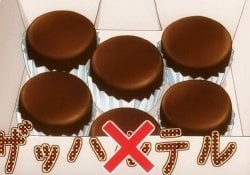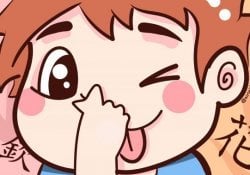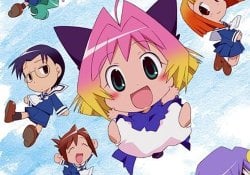Have you heard of the Japanese mafia yakuza? Do you know how they are organized? What are your codes of conduct? How the Japanese view the yakuza? In this article we will see everything about the Yakuza.
Yakuza [ヤクザ] is the name of the biggest criminal faction in Japan and the world. She is also known as Gokudō [極道]. There are more than 100,000 members around the world belonging to the crime syndicate Yakuza.
Definition - What is Yakuza?
To the Japanese police and press, this criminal organization is called the Bōryokudan [暴力団], meaning “Group of Violence”, but members often refer to themselves as Ninkyō dantai [任侠団体], which means "Chivalrous Organization".
You yakuza have a code of conduct and are very organized like the ancient samurai. Its members follow a code of rules based on loyalty and fidelity, they also have some obligations such as not hiding money from the group, not going to the police and never disobeying the order of a superior.
According to the members themselves, they do not commit crimes and carry out activities legally. Although some commit crimes, many make investments and offer protection to some establishments.
Origin - How did the Yakuza Mafia come about?
It is believed that the yakuza emerged in the middle of Edo period (1603 – 1868). They were divided into 2 groups:
- Tekiya [的屋] – Peddlers or traders who sold illicit, stolen or poor quality goods;
- Bakuto [博徒] – Players who were involved or participated in games of chance involving cards and dice;
The name Yakuza derives from the junction of Untranslatable [八] Ku [九] Za [三] which is a number sequence 893 [八九三]. The number sequence is considered the worst type of hand in a Japanese card game like hanafuda [花札].
Realize that everything is involved with gambling, even the tattoos that yakuza gang members wear, became popular because of the Bakuto who tattooed their entire body and showed off during gambling.
You Tekiya also influenced the activities carried out by the Yakuza members. During Shinto festivals, peddlers would open tents and hire some members as security. Usually the gang generates its income through protection for merchants.
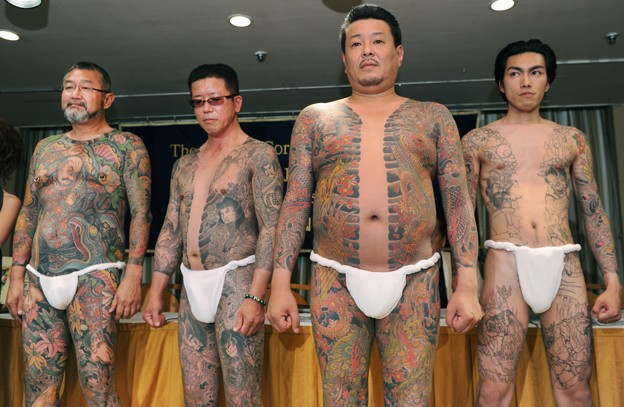
Yakuza crimes and activities
The members of Yakuza they don't usually commit murders and robberies too much like the traffickers in Rio de Janeiro. They are organized men who perhaps fall into the category of politicians and religious leaders.
This is because many members of the yakuza they live in the midst of society discreetly and have a social life like any other. They are not pursued by the police, nor are they often on the run.
Many families from yakuza have their homes in prominent places, mansions full of security guards, some are business owners or control companies. Not even weapons are common among members of the yakuza.
The Japanese mafia is involved in extortion, embezzlement, prostitution, gambling, money laundering, arms and drug trafficking, and more sophisticated white-collar crimes.
Many merchants and companies maintain relationships with Japanese mafia groups. According to a report by the National Agency for Police, in 2014, more than 22,000 people linked to yakuza groups in Japan were arrested.
There is no official data on the amounts moved by the Japanese mafia, but estimates are that the Japanese mafia moves “billions of dollars” per year illegally in Japan.
Usually the members of yakuza run bars, hostesses and massage parlors in red-light neighborhoods like kabukicho. They are quite discreet, so they usually don't have much to say about their activities.
The article is still halfway through, but we recommend also reading:
The Yakuza aren't that bad
Of course, some groups get involved in drug trafficking, human trafficking, prostitution and many others. But it's not that scary, it's considered a semi-legitimate organization and it has helped many.
For example, after the Kobe Earthquake, Yamaguchi mobilized to provide relief services (including the use of a helicopter) which came before the government's own help. This was widely reported and commented on.
A yakuza repeated its assistance after the 2011 Tohoku earthquake and tsunami, with groups opening their offices to refugees and sending dozens of trucks with supplies to affected areas.
Many unions with Yamaguchi-gumi, officially bans its members from engaging in drug trafficking. They make large investments in well-known and legitimate companies, they also have ties to the real estate market and banks.
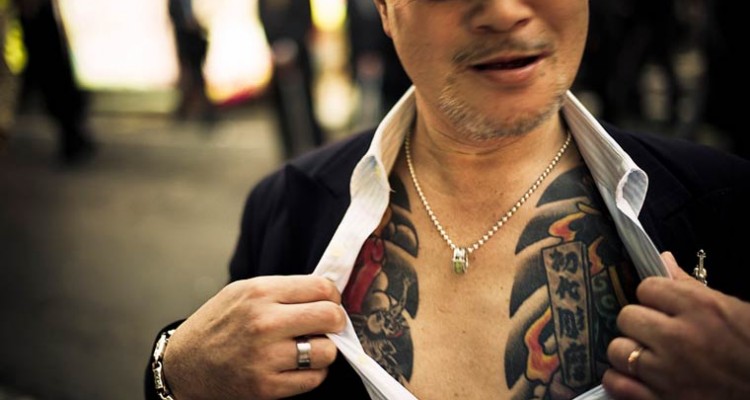
They often participate in local festivals such as the Sanja Matsuri, where they carry a shrine through the streets displaying their elaborate tattoos. Sometimes they have parties for children, or participate in festivals by setting up their own tents.
As a matter of principle, theft is not recognized as a legitimate activity of the yakuzaThis is in line with the idea that their activities are semi-open; theft, by definition, would be a cowardly activity.
Core activities such as merchandising, loan sharking or bookmaker management are typically managed by outsiders yakuza, who pay protection fees for their activities.
Even so, you must be careful not to irritate a member of the yakuza. They are generally moody and do not like to communicate with strangers. Don't even think about picking a fight with one, otherwise you could literally die.
I had a friend of a friend who crashed into an expensive car owned by a member of the yakuza. The guy who was Brazilian, simply fled the city to avoid having to pay. Believes that the member of the yakuza did he locate?
Yakuza family and structure
the crime syndicate yakuza it's a family like the old mafias. Members live for the sake and honor of the group which adopts a traditional Japanese hierarchical structure known as oyabun-kobun.
Kobun [子分] literally means adopted son, which are the members who owe their allegiance to the oyabun [親分] who is the adoptive father of the family. The system follows a moral code of justice and duty called jingi [仁義].
Members of yakuza gangs sever their family ties and transfer their allegiance to the gang boss who is also called kumicho [組長] meaning chief.
Saiko-komon (最高顧問): is a kind of senior consultant and so-honbucho is a head of headquarters that is below the kumicho. O shingiiin [審議委員] takes care of legal matters, while the kaikei [会計] is literally the counter.
The waka-gashira [若頭] and the fuku-honbucho [副本部長] are responsible for running a number of groups in a region. Each group is led by a shatei-gashira [舎弟頭].
Group members also use a general hierarchy called brothers as if it were a religion. Kyoudai [兄弟] is used for older siblings and shatei [射程] for younger group members (siblings).
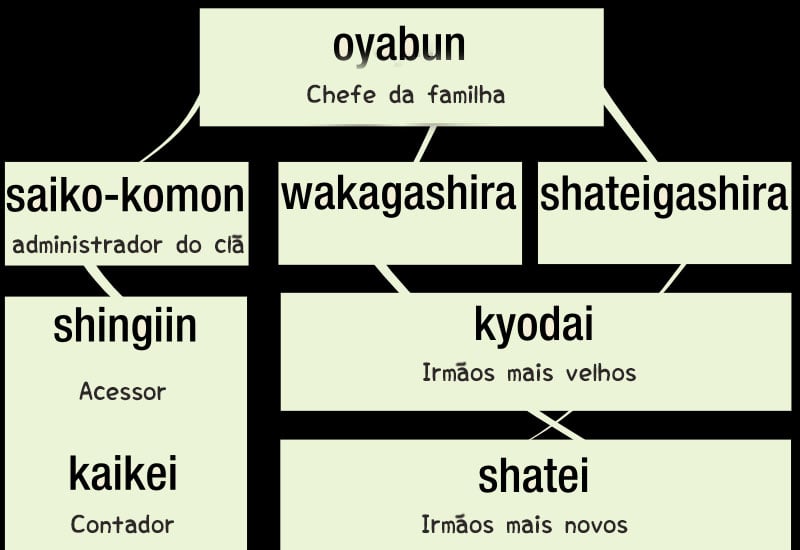
The biggest yakuza families
There are many families scattered across Japan. The main ones are listed below:
Yamaguchi-gumi [六代目山口組] – Created in 1915, it is the largest Yakuza family, has more than 40,000 members and is divided into 750 clans. Its Oyabun (leader) is Kenichi Shinoda.
Sumiyoshi-rengo [住吉会] or Sumiyoshi-kai [住吉会] – It is the second largest family with more than ten thousand members divided into 177 clans. His current Oyabun is Shigeo Nishiguchi, Osomuya Tanaka. It is the Yamaguchi-gumi's death enemy.
Inagawa-kaï [稲川会] – It is the third largest family with over 7,000 members and is divided into 177 clans. His current Oyabun is Kakuji Inagawa. It was the first to operate outside and inside Japan
Towa Yuai Jigyo Kumiai [東亜友愛事業組合] or [東亜会] – It is the fourth largest family with over a thousand members and is divided into 6 clans. His current Oyabun is Satoru Nomura. It was the first to be created in Korea.
The Rituals and Customs of the Yakuza
When one yakuza commits a crime or wants to show repentance, he amputates his own finger in a ritual called "yubitsum”.
Many yakuza have tattoos on their bodies. These tattoos, known as irezumi, are often still done by hand, i.e. the ink is inserted below the skin using non-electric hand tools with bamboo or steel needles. The procedure is expensive, painful and can take years to complete.
When members play cards of Oicho-Kabu with each other, they usually take off their shirts or open them and tie them around their waists. This allows them to show off their tattoos to others.
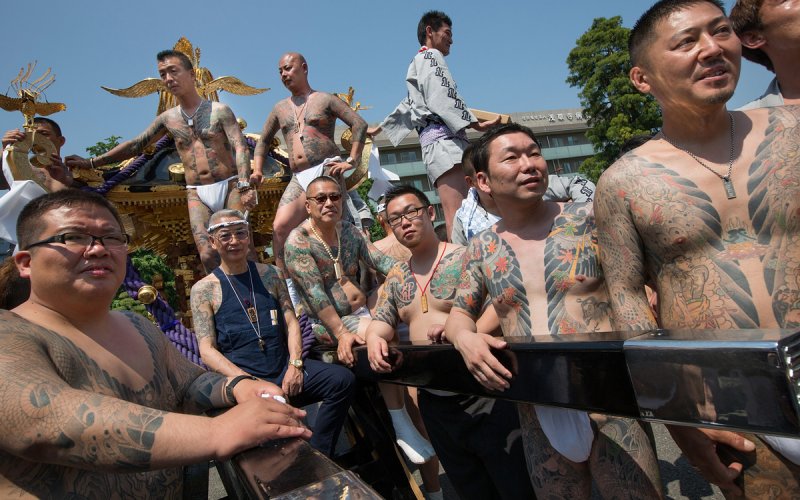
This is one of the only times when members of the yakuza show off their tattoos to others. They often keep them hidden in public with long-sleeved, high-necked shirts.
Due to their association with the Yakuza, the Japanese have developed a prejudice about tattoo, but that does not prevent them from being seen as great works of art around the world.
Of course, there are still many other curiosities and facts about the Japanese mafia. I also recommend playing games like Yakuza, watch dramas like "My boss my hero" and some films to delve into the culture.
Finally, I'll leave a report from R7 talking about the Yakuza. Just remembering that the media usually generalize things.

